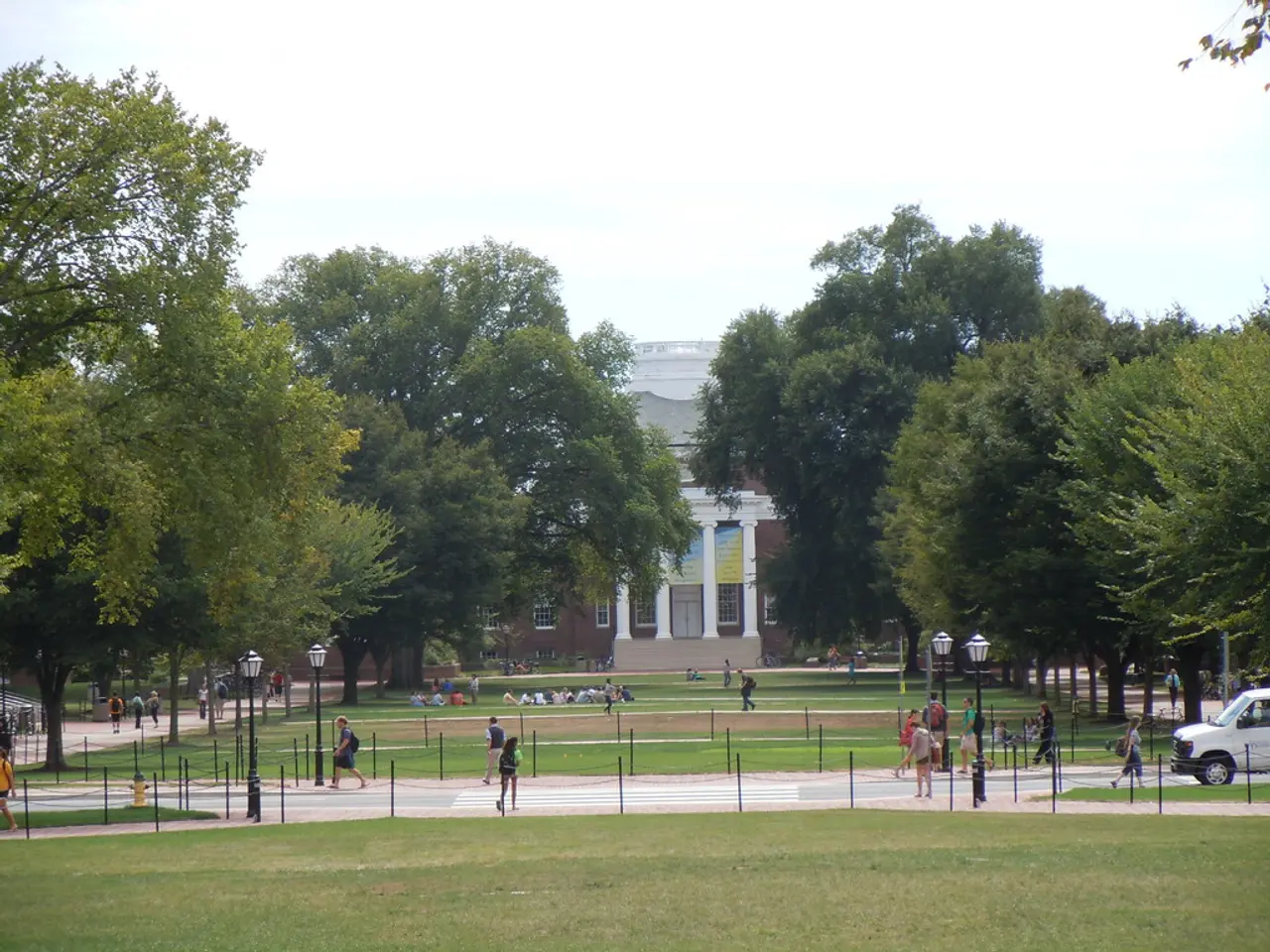Universities in Darmstadt face an uncertain future due to viability concerns
Hessian Higher Education Pact: Universities Face Challenges Amid Budget Cuts
The Hessian Higher Education Pact for 2026 includes a significant reduction of 30 million euros in university budgets, leading to financial constraints for Hessian universities [1][2][3]. This reduction, combined with stagnant budgets adjusted only to 2010 levels despite a 20% increase in student numbers and growing personnel and operating costs, is expected to cause budget deficits that need to be offset by savings measures across all university sectors.
The budget cuts under the Hessian Higher Education Pact are likely to strain the quality of study and teaching. Universities are forced to implement broad savings and efficiency measures while trying to safeguard academic standards amid limited resources [1][2][4].
Impact on Universities
The Technical University of Darmstadt (TU Darmstadt) states that the Higher Education Pact weakens its innovative strength and competitive ability in Hesse. Due to cuts, the TU's budget will remain at the 2010 level, despite a 20% increase in the number of students in the same period. Increases in personnel and material costs will lead to a deficit in the university budget, which will have to be compensated by cuts [1][3].
Similarly, Darmstadt University of Applied Sciences is facing challenges due to the new Higher Education Pact, with the exact amount of money missing yet to be determined [4].
Savings Measures
Universities are implementing various savings measures to manage the deficits. These include careful cost scrutiny and cutting across departments to avoid structural deficits, responsible budgeting processes conducted in close dialogue with university members and organizational units, and potential reductions in personnel and operating expenses [1][2].
Protests and Criticism
The Higher Education Pact has faced sharp criticism, including protests in Darmstadt, and universities such as Darmstadt University of Applied Sciences and Technical University of Darmstadt are facing challenges due to the new Pact [4]. University bodies, such as the senates of the 14 Hessian universities, and associated unions have protested the pact, highlighting concerns about inevitable cuts amounting to about 10% of university resources [4].
Looking Ahead
Universities in Hesse will initially receive around 30 million euros less in 2026 compared to this year, but the budget will return to this year's level in 2027 and increase from 2028 onwards [1]. The three university leaders, including the President of TU Bruhl, urge prioritizing the qualification of students to secure a strong and broad base of specialists for the economy and society.
References: [1] Tagesspiegel.de [2] Hessenschau.de [3] Frankfurter Allgemeine Zeitung [4] Rhein-Main-Zeitung
The budget cuts in the Hessian Higher Education Pact might influence other sectors beyond academia, such as education-and-self-development and general-news, given the widespread impact and potential consequences for students and the broader society. Politicians need to consider the long-term effects of these budget reductions on the younger generation's education and future opportunities.
The protests and criticism against the Hessian Higher Education Pact reflect a wider public concern about the impact of the budget cuts on universities and self-development opportunities, and it may become a significant political issue in the upcoming elections.




